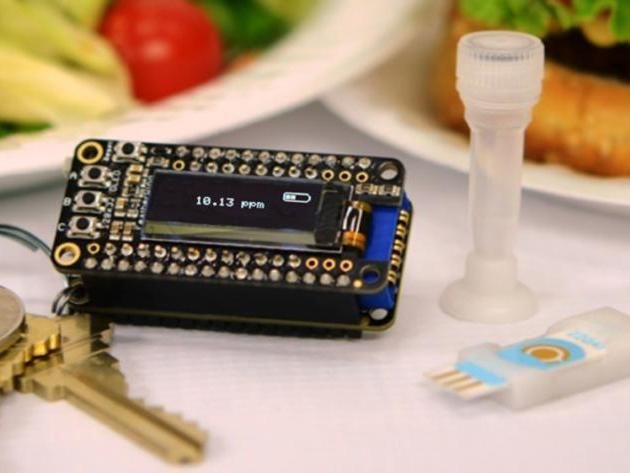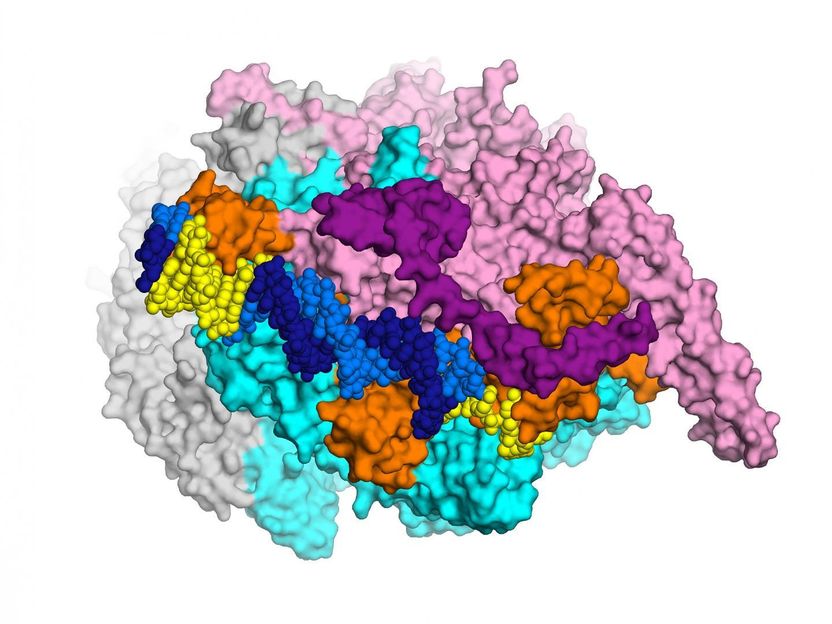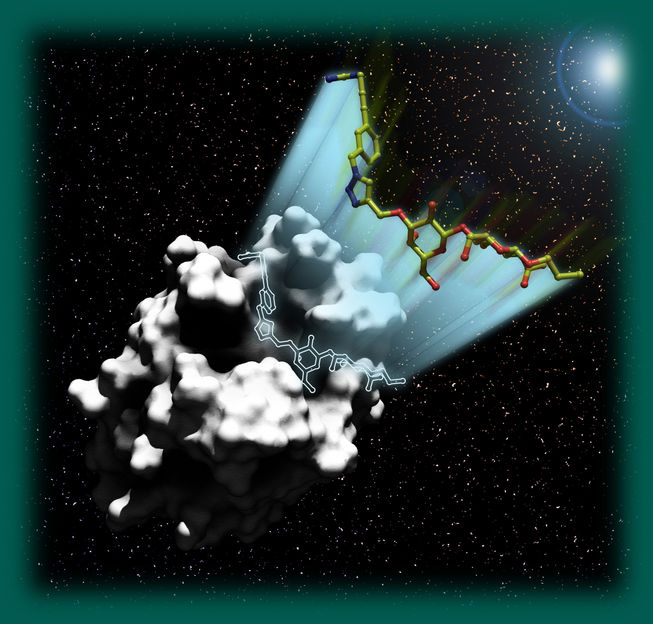Keychain detector could catch food allergens before it's too late
For kids and adults with food allergies, a restaurant outing can be a fraught experience. Even when care is taken, freshly prepared or packaged meals can accidentally become cross-contaminated with an offending food and trigger a reaction. Now researchers report the development of a new portable allergen-detection system -- including a keychain analyzer -- that could help prevent trips to the emergency room.

A portable allergen-detection system with a keychain analyzer could help people with food allergies test their meals.
The American Chemical Society
Most people with food allergies manage their condition by avoiding the specific nuts, fish, eggs or other products that cause a reaction, which can range from a mild rash to life-threatening anaphylaxis. But avoidance isn't always possible because food can be mislabeled or cross-contaminated. Conventional methods to detect these hidden triggers either require bulky laboratory equipment, or are slow and don't pick up on low concentrations. Ralph Weissleder, Hakho Lee and colleagues wanted to make a more practical, consumer-friendly option.
The researchers developed a $40 portable allergen-detection system called integrated exogenous antigen testing, or iEAT. It consists of a handheld device to extract allergens from food and an electronic keychain reader for sensing allergens that wirelessly communicates the results to a smartphone. In less than 10 minutes, the prototype could detect five allergens, one each from wheat, peanuts, hazelnuts, milk and egg whites, at levels even lower than the gold standard laboratory assay. Testing on samples of menu items from restaurants showed some allergens in unexpected dishes and beverages -- for example, gluten in salad and an egg protein in beer. Although the prototype was designed to sense five allergens, the researchers say the device could be expanded to test for additional compounds, including other allergens and non-food contaminants such as pesticides.
Original publication
Original publication
Hsing-Ying Lin, Chen-Han Huang, Jongmin Park, Divya Pathania, Cesar M. Castro, Alessio Fasano, Ralph Weissleder, and Hakho Lee; "Integrated Magneto-Chemical Sensor For On-Site Food Allergen Detection"; ACS Nano; 2017
Topics
Organizations
Other news from the department science

Get the life science industry in your inbox
By submitting this form you agree that LUMITOS AG will send you the newsletter(s) selected above by email. Your data will not be passed on to third parties. Your data will be stored and processed in accordance with our data protection regulations. LUMITOS may contact you by email for the purpose of advertising or market and opinion surveys. You can revoke your consent at any time without giving reasons to LUMITOS AG, Ernst-Augustin-Str. 2, 12489 Berlin, Germany or by e-mail at revoke@lumitos.com with effect for the future. In addition, each email contains a link to unsubscribe from the corresponding newsletter.
Most read news
More news from our other portals
See the theme worlds for related content
Last viewed contents

Intergenerika - Liestal, Switzerland

Atomic-scale view of bacterial proteins offers path to new tuberculosis drugs

Cancer detection with sugar molecules
Parahuman

Powering a microprocessor by photosynthesis - Algae-powered computing: Scientists create reliable and renewable biological photovoltaic cell
Cosmos Alliance - Washington, USA
Genzyme’s Alemtuzumab for Multiple Sclerosis Shows Durable Treatment Benefit in Review of Four-Year Phase 2 Trial Data - Company’s CARE-MS II Phase 3 Trial Completes Enrollment
Safe medications thanks to new test procedures - High-Tech Gründerfonds invests in SIGNATOPE GmbH
Joint efforts to control diseases transmitted from animals to humans - BfR Symposium on Zoonoses and Food Safety
Genmab Announces Lift of Zalutumumab Partial Clinical Hold
Celera and Collaborators Discover a Genetic Marker Associated with Severe Coronary Artery Disease - Carriers of gene variant exhibit an approximate 3-fold increased risk of disease



















































